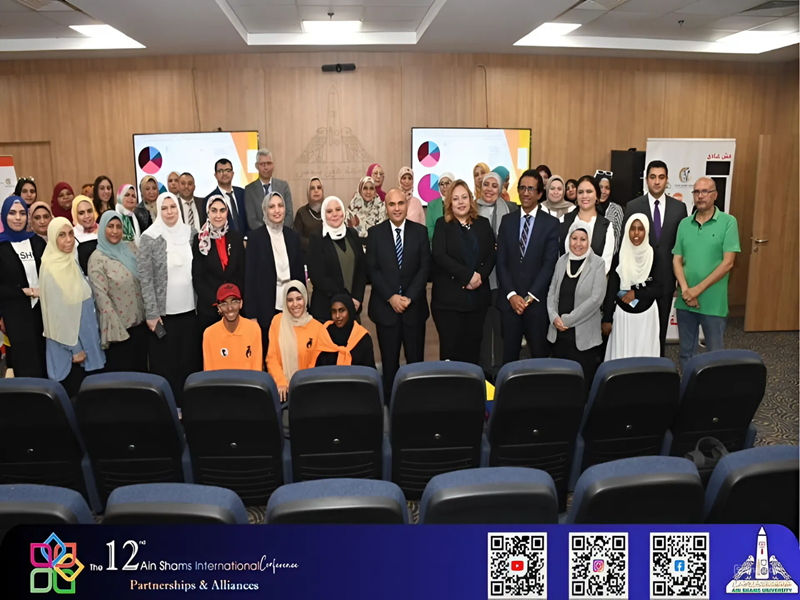The activities of the first day of the conference of Women Support and Anti Violence Unit at Ain Shams University under the title “Digital Development... Fair or Unfair to Women”
Under the patronage of Dr. Maya Morsi, President of the National Council for Women, Prof. Mohamed Diaa Zein El-Abedeen, President of Ain Shams University, Prof. Ghada Farouk, Vice President of the University for Community Service and Environmental Development Affairs, inaugurated the activities of the first day of the conference of the Women Support and Anti-Violence against Women Unit at Ain Shams University under the title “Digital development…fair or unfair to women”, with the participation of many different sectors in the country such as the National Council for Women, the Ministry of Justice, The Ministry of Interior, the Supreme Council of Universities, and the Administrative Prosecution Authority.
Prof. Ghada Farouk, Vice President of the University for Community Service and Environmental Development Affairs, explained the distinguished role of Ain Shams University in Women support and Anti-Violence against Women by holding seminars and events provided by the Unit to support students inside and outside the campus.
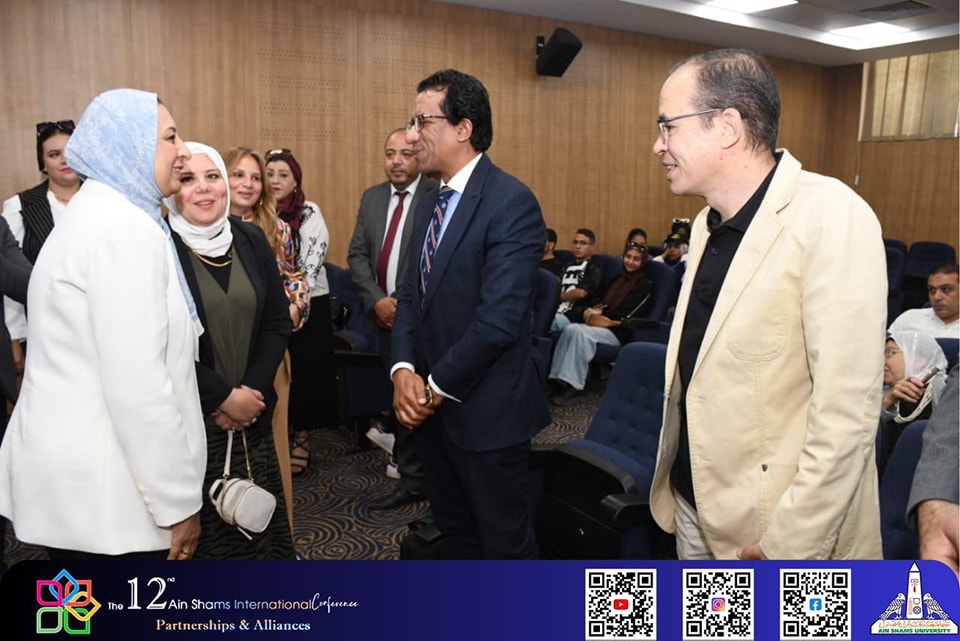 |
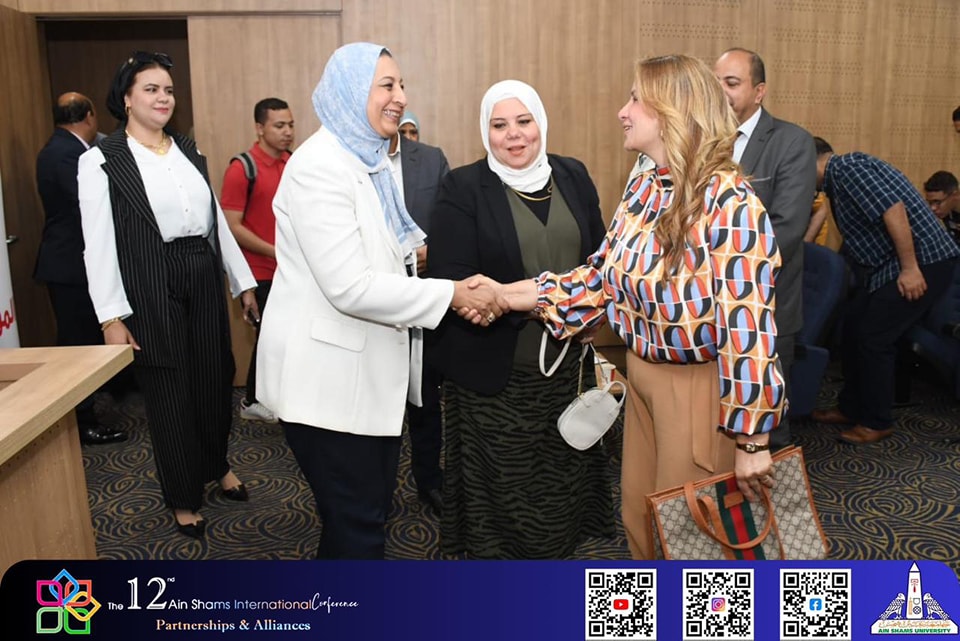 |
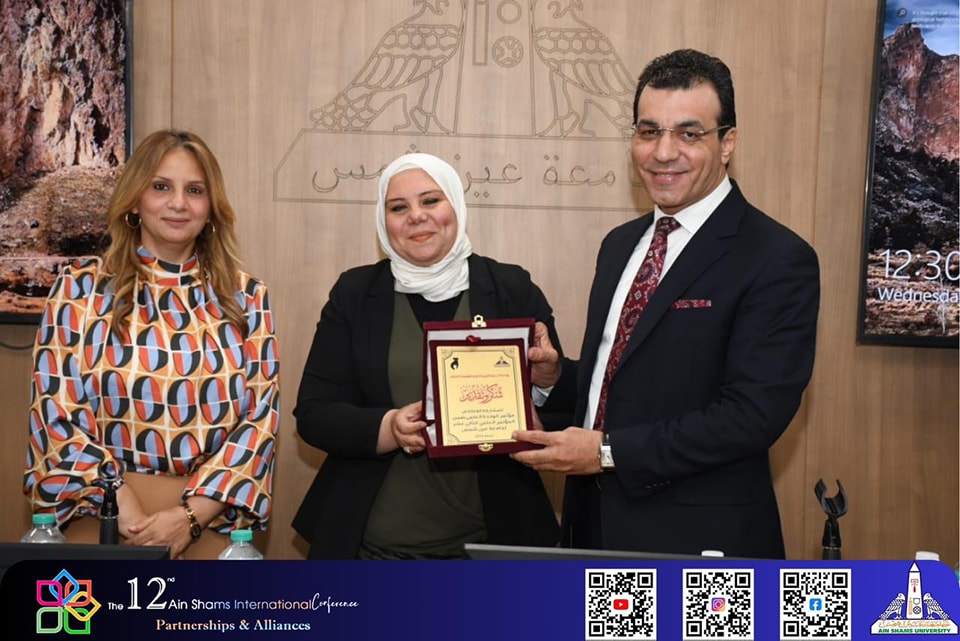 |
||
Prof. Hend Al-Helaly, Executive Director of Women support and Anti-Violence against Women at the University, pointed out in her speech the role of the Unit in supporting students through the programs, workshops, training and convoys that it organizes by supporting the university administration in providing a safe educational environment.
The first session was about “The Role of State Institutions in Protecting Women Against the Risks of Cybercrime,” in the presence of Prof. Hanan Kamel, Chairman of the session, Dean of the Faculty of Arts, Ain Shams University, Counselor Amal Ammar, Assistant Minister of Justice for Human Rights Affairs, Prof. Hatem Rabie, Vice Dean of the Faculty of Arts for Postgraduate Studies, Prof. Hend Al-Helaly, Director of Women support and Anti-Violence against Women at Ain Shams University.
Prof. Hanan Kamel, Dean of the Faculty of Arts and Chairman of the Committee, emphasized the role of institutions in protecting and promoting women in accordance with international human rights standards in all fields and spreading awareness of them, and contributing to ensuring the implementation of this in light of the provisions of Islamic Sharia and demonstrating women’s rights in Egyptian society, and contributing to achieving justice and a decent life for women survivors. of violence, especially women with disabilities, in addition to developing the capabilities of the relevant institution providing social and legal services, including The Ministry of Social Affairs, Protection Homes, the Police, and the Public Prosecution, in addition to community awareness about violence against women and the various services available to women victims of violence, in an effort to improve the access of women victims of violence to various services.
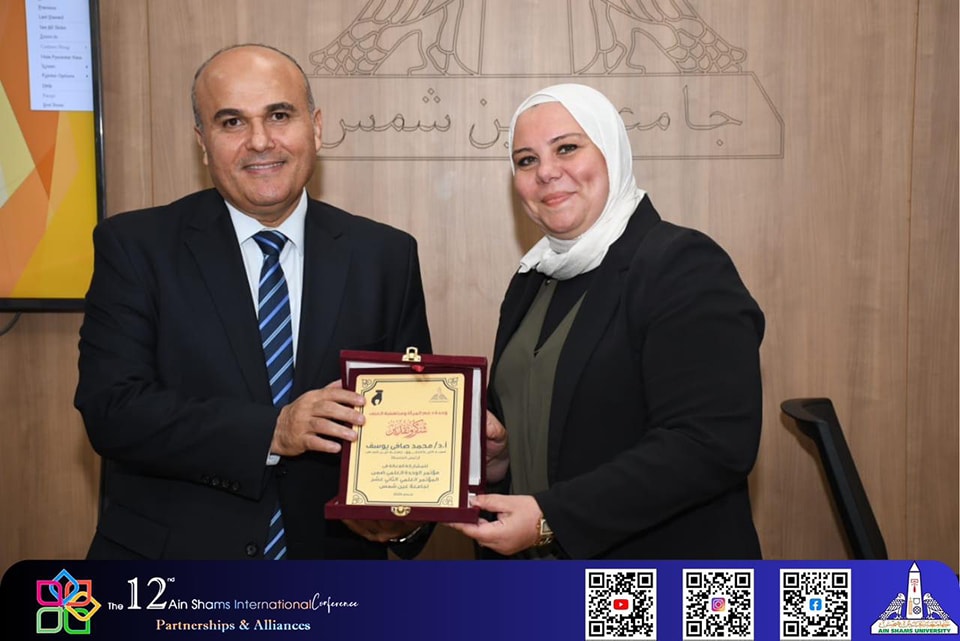 |
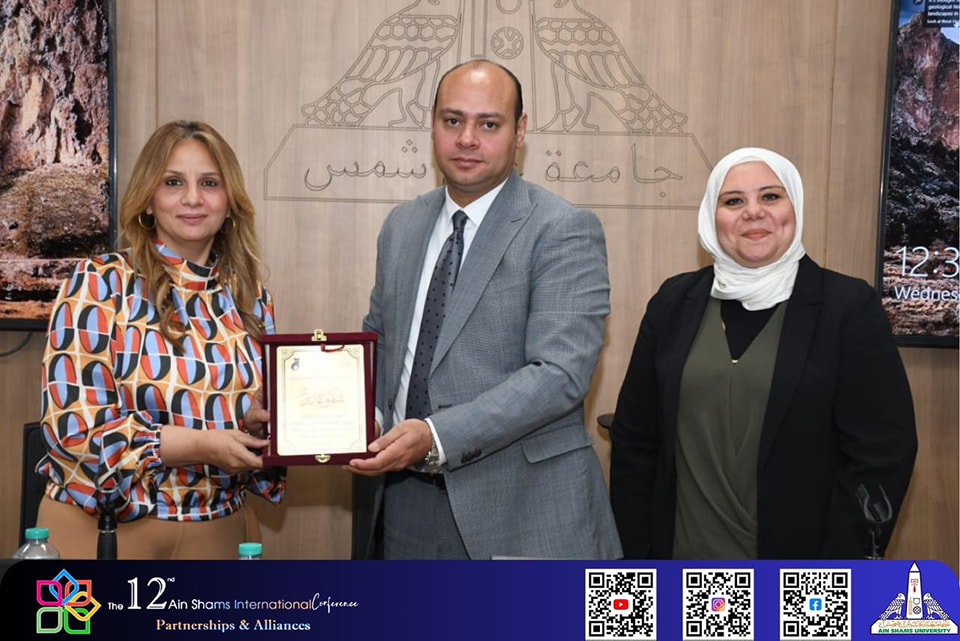 |
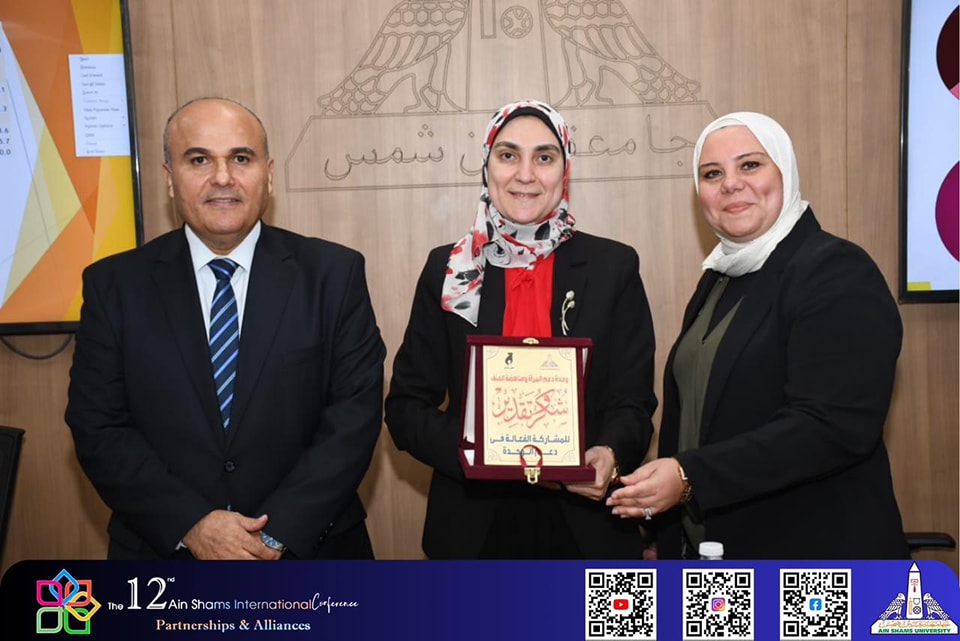 |
||
Prof. Mona Hagras, Assistant Secretary General of the Supreme Council of Universities, stressed the need to activate a code of student practices within the university, and praised Ain Shams University’s support for students through the Anti-Violence Unit.
The speakers at the session were: Mr. Shaima Naeem, Director of the General Department of Strategic Planning at the National Council for Women, explained the role of the National Council for Women in protecting women from electronic violence, Brigadier General Amr Atallah, Director of the Women and Children’s Crimes Follow-up Department at the Ministry of Interior, Counselor Mostafa Farraj, Counselor at the Technical Office for the Human Rights, Women, Children and People with Disabilities Sector of the Ministry of Interior and Justice, Prof. Mohamed Khattab, Head of the Department of Psychology, Faculty of Arts, Ain Shams University, spoke about the university’s role between prevention and treatment in confronting the psychological effects resulting from electronic violence among female students, Prof. Rehab Abdel Rahman, Director of the Obstetrics and Gynecology Hospital, spoke about the role of women’s safe units and protecting women against electronic violence.
The second session entitled “Criminal Risks of Using Artificial Intelligence” (Legal Perspective), in the presence of Prof. Mohamed Safi, Dean of the Faculty of Law and Chairman of the Committee, Counselor Mohamed Abu Deif Pasha, Secretary General of the Administrative Prosecution Authority, A. Amal Abdel Moneim Tawfek, Director of the Women’s Complaints Office in the National Council, spoke about the role of the Complaints Office in protecting women against electronic crimes, Counselor Heba El-Gendy, Director of the Women’s Affairs and Disability Support Unit at the Administrative Prosecution Authority, and the representative Maysa Atwa, member of the Egyptian House of Representatives and founder of the Women Bloc and the Ad El-Tahady Youth.
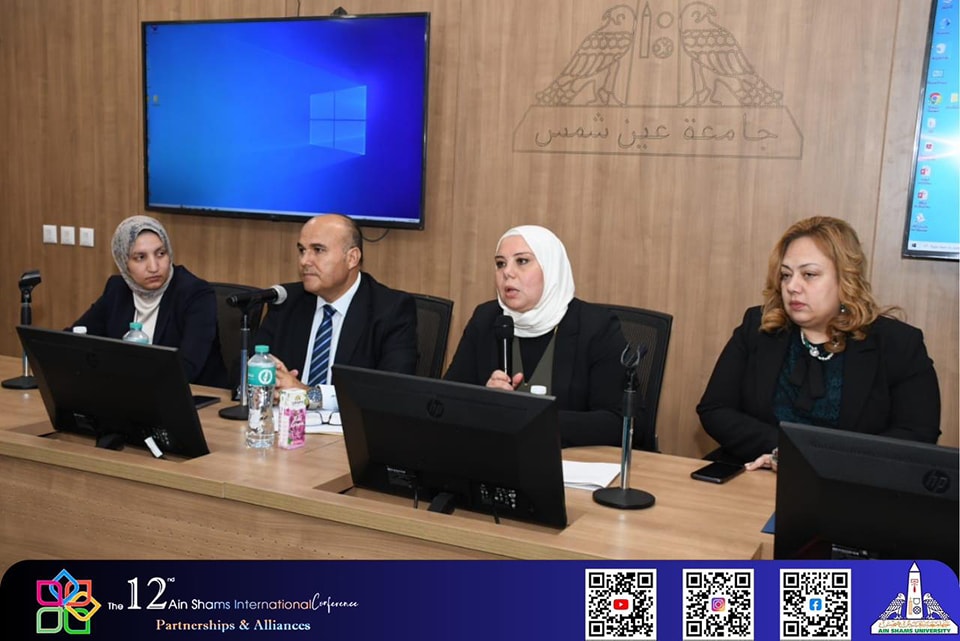 |
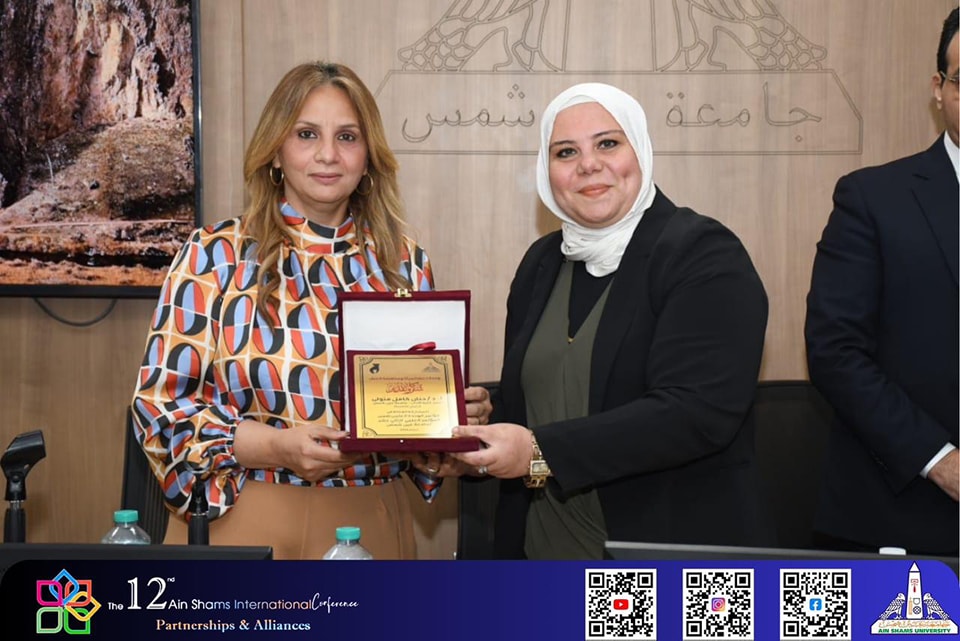 |
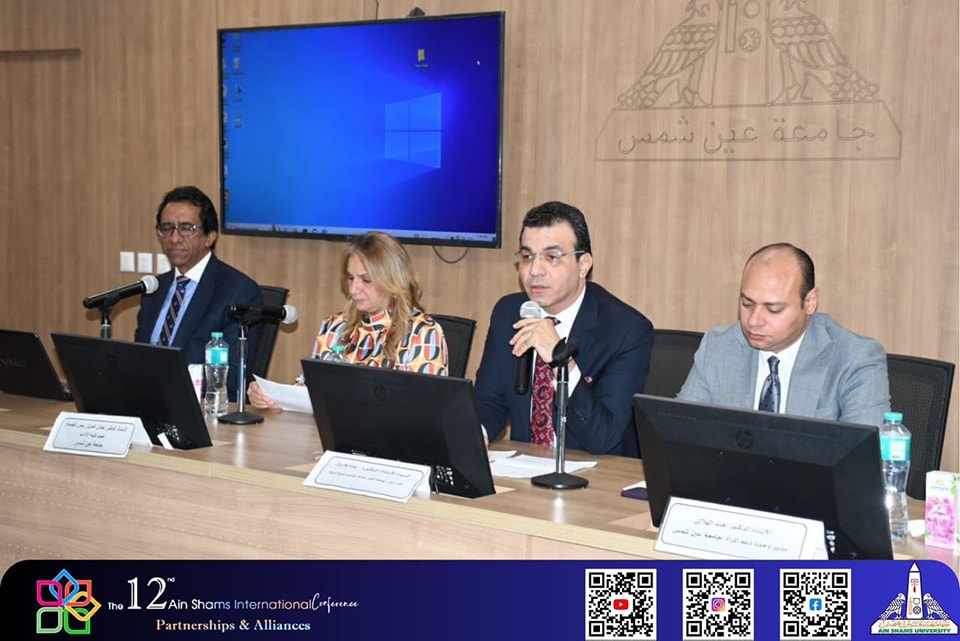 |
||
Prof. Mohamed Safi, Dean of the Faculty of Law and Chairman of the session, explained the concept of artificial intelligence as a type of new technology that can be used in a good or bad way, and this is linked to the emergence of some new applications that rely on huge data, and this data includes personal data, so data protection must be activated. He must stress the existence of a regulatory framework, provided that there are no restrictions on the operation of the technology itself, because this has another aspect that may limit creativity. Therefore, restrictions must be imposed on society itself through laws that protect it in general. The crimes committed must have a penalty for the act itself, such as the penalty for the crime of fraud, is applied, regardless of the method of committing the crime, whether using artificial intelligence or without it.
He pointed to the criminal crimes that occur through the use of artificial intelligence applications such as robots, self-driving cars, and drones, while most of us interact with artificial intelligence systems on a daily basis, as machines and computers affect our personal and professional lives, applications of artificial intelligence technology are not only related to our public and daily lives.
Criminal justice aims to protect society and achieve justice by tackling crimes and punishing the guilty. This process includes procedures for investigation, arrest, trial, conviction and execution of punishments, and preserves the rights of individuals and ensures that they are not violated in the context of criminal processes.
The attendance at the session were Dr. Iman Al-Jamil, lecturer of women’s criminal law, who spoke about the criminal protection of women: the crime of electronic blackmail, Counselor Soha Al-Saadani, of Women’s Affairs Unit, Administrative Prosecution Authority, spoke about the role of the Women’s Unit in its support of women’s issues.
At the conclusion of the session, Prof. Hend Al-Helaly presented the results of the field study conducted by student volunteers in the unit on the extent of male and female students’ awareness on campus about forms of electronic violence and protection and prevention mechanisms.
On the sidelines of the conference, a workshop was held entitled “Stress Management,” presented by Ms. Amani Abdel-Al, the unit’s clinical psychologist.


.svg)

